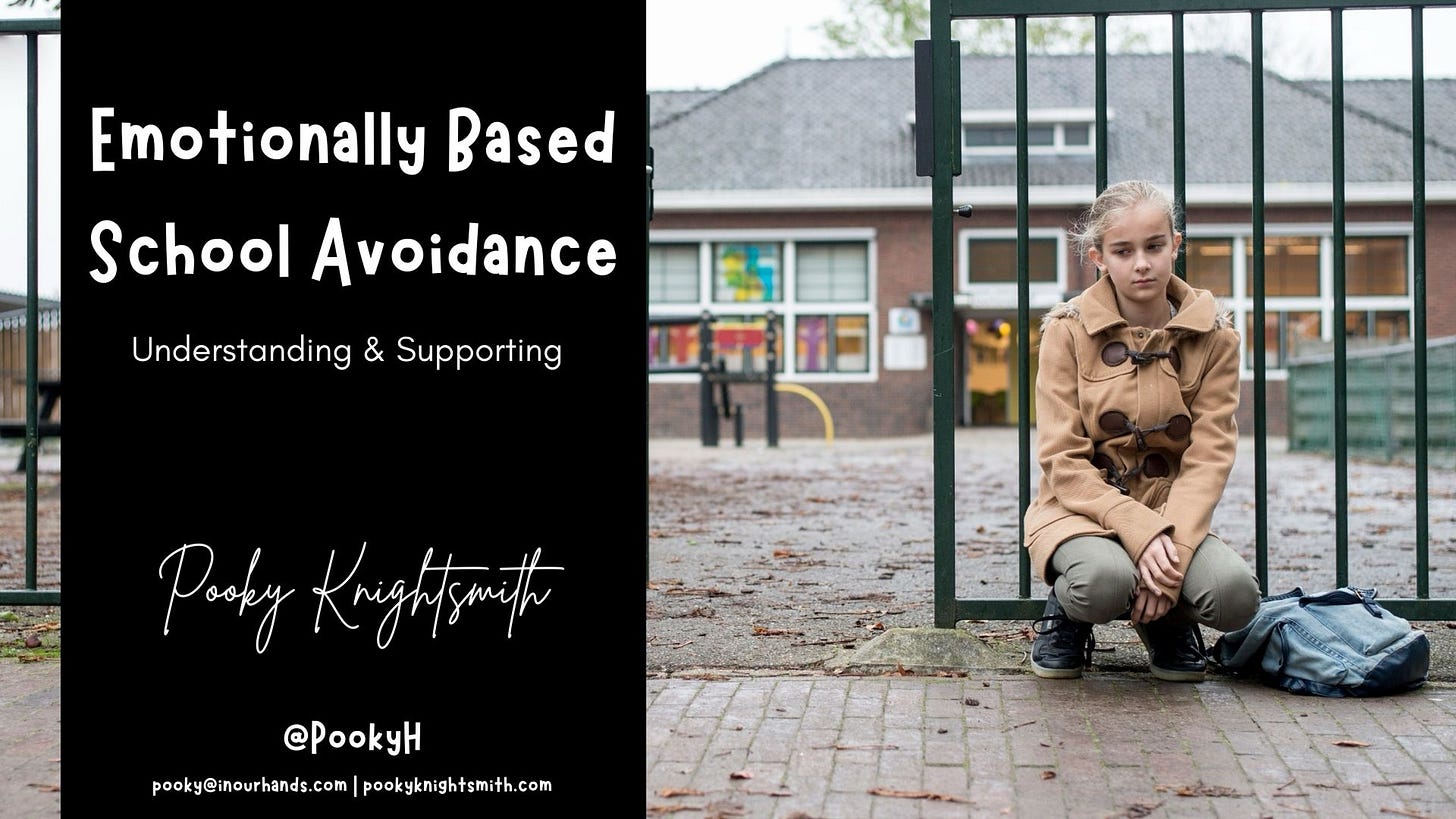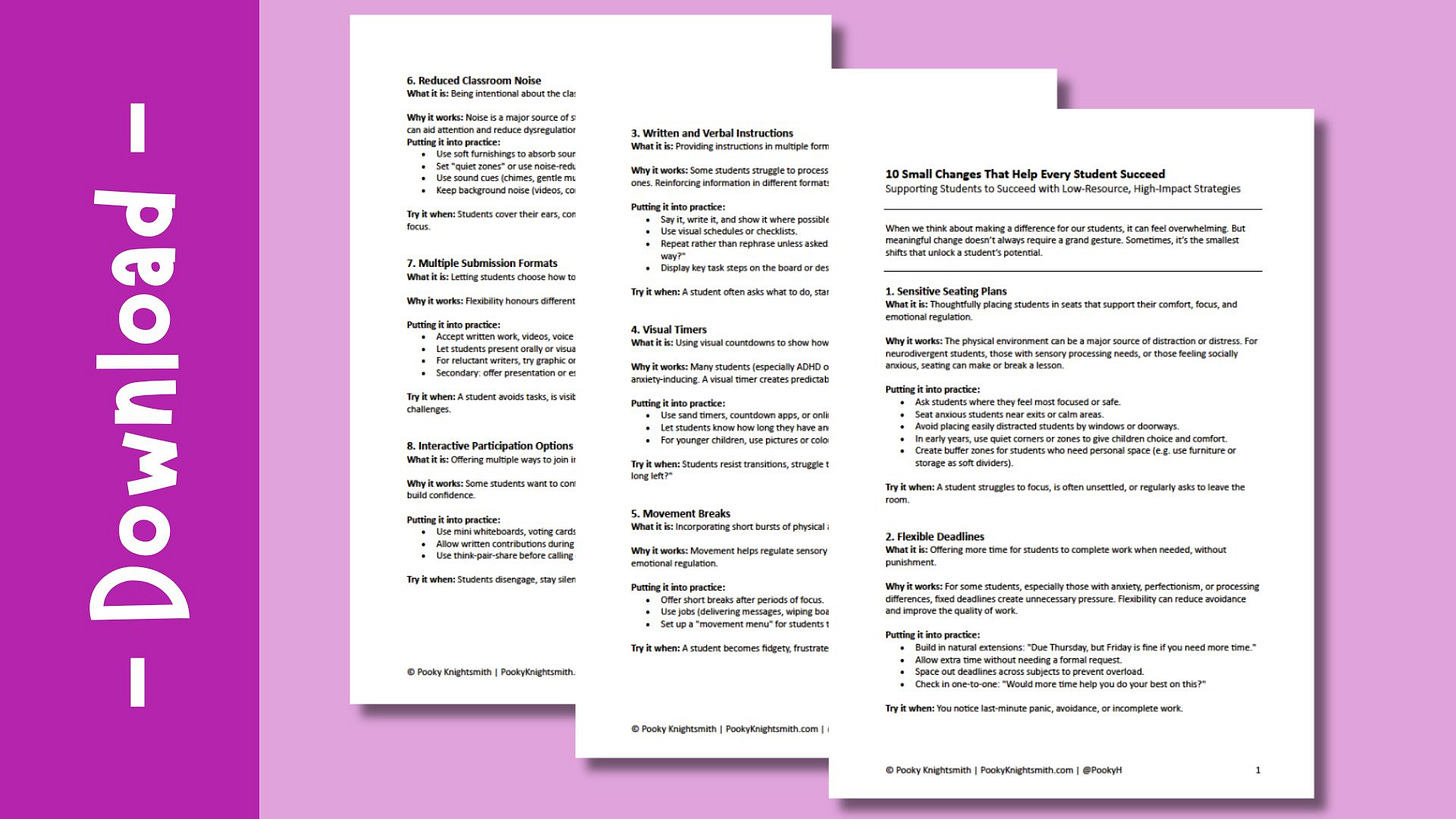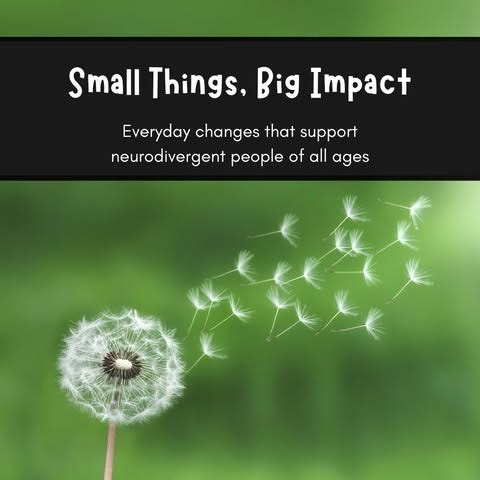This week’s focus has been on gentle shifts with big impact, whether it’s how we respond to school-based anxiety, avoid power struggles with PDA learners, or simply make everyday life a little easier for neurodivergent people.
I’ve shared slides, resources, strategies, and a free lesson that I hope will help you feel more confident and better equipped, without needing all the answers or a magic wand. Sometimes the smallest changes really are the most powerful.
Everything below is free to access and share - thank you for being here, and for the work you’re doing.
PRESENT: Understanding School-Based Anxiety (EBSA)
These are the slides from a recent session on emotionally based school avoidance (EBSA)—a gentle, practical look at what school-based anxiety really is, how it shows up, and what we can do to help.
We explored the early signs (often easy to miss), thought about how to reduce overwhelm and build trust, and shared ideas for creating safer, more supportive environments for anxious learners—without needing to be a mental health expert.
It’s a session full of small, doable shifts that can make a big difference. I hope the ideas land well even without me there to talk them through.
(To book me or to find out more about my talks and webinars, email the lovely Ellie - Ellie@speakingofbooks.co.uk )
DOWNLOAD: 10 Small Changes That Help Every Student Succeed
This one’s for anyone who wants to support every student, but doesn’t have endless time, energy, or budget. It’s a simple selection of small tweaks that can make a big difference, especially for students who are quietly struggling or often overlooked.
(As always, feel free to share or adapt for your setting—the Word version’s included in case you fancy making it your own.)
WATCH: Reframing ‘Bad’ Behaviour
Here are 6 things children often get punished for – that may actually be signs of anxiety, overwhelm, or unmet need.
LEARN: PDA - Communicating without Escalating
When working with demand avoidant learners, even simple instructions can feel like pressure and well-meaning conversations can quickly spiral.
This free lesson explores how to communicate in ways that reduce anxiety rather than add to it. We look at tone, timing, language, and non-verbal cues, plus simple tweaks you can make to avoid power struggles and keep connection at the heart of your approach.
READ: Cards Against Anxiety
I wrote this one a few years ago - and I’m still hearing how helpful it is, which makes my heart very happy.
It’s a deck of 25 simple, practical strategies for managing anxious feelings, designed to be picked up and used in the moment (no prep, no pressure). Whether you’re supporting yourself, a child, a teen, or someone you work with, the cards offer calm, doable ideas that can make a real difference, especially when anxiety feels overwhelming.
They’ve found their way into classrooms, therapy rooms, handbags, and back pockets…
UNDERSTAND: Everyday Changes to Support ND
Simple, actionable ideas that make life easier for neurodivergent people of all ages - at home, at school, at work.
SMILE: Wild Hair, Joyful Heart
This week’s smile? Me, head out the window of a heritage train, hair all over the place, grinning like an overexcited labrador.
Here’s to windswept joy, unexpected special interests, and the freedom to grow into yourself.
—
Please do use or share my resources - if they help even one child, one family, or one teacher feel a little more understood or supported, then it’s all been worth it.
If you’d like to support my work, you can:
Share it with someone who might find it helpful
Pledge £1 a month on Patreon
Invite me to speak at your next event, online or in person
Enroll in one of my online courses.
Thanks, as always, for reading.
Until next time,
Pooky
Pooky Knightsmith PhD
Keynote Speaker
Speaking and webinar enquiries: Ellie@speakingofbooks.co.uk






